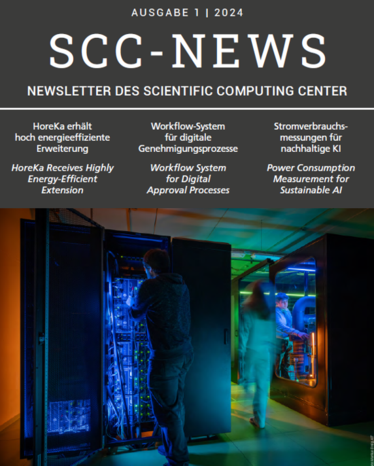Dear reader,
IT companies such as Google and Microsoft are increasingly using artificial intelligence (AI) in their products. The huge computing power required for this is usually provided by state-of-the-art graphics processing units (GPUs). These in turn require a lot of electrical energy to process AI algorithms. But how can modern computer systems run more efficiently and sustainably without slowing down progress? In this issue, SCC shows you some of the changes that can be made.
First, it is important that computer systems can perform more calculations with less energy. Our supercomputer HoreKa has demonstrated this impressively after its new upgrade. It is now the sixth most energy-efficient computer in the world (p. 20). Another option is to generate the required electricity locally from renewable energy sources. KIT is currently installing several large solar systems on the roofs of its institutes. The roof of the SCC buildings alone will have a peak output of about 500 kW.
There is also room for improvement in software. Initiated by SCC the research community has started to discuss how measuring the power consumption of AI software can serve as a sustainability metric (p. 23). However, it is not only energy saving that contributes to sustainability in IT. One example is the sustainable storage of research data. The SCC is developing concepts that will enable researchers from different disciplines and locations to work efficiently with existing data (p. 5 and 27).
Finally in this SCC News, we talk about digitalisation of KIT's business processes – i.e. electronic workflows – which will further reduce errors, working time, and paper consumption (p. 16). Speaking of paper: starting with this issue, we will be sending out SCC News exclusively in digital form and in a new layout.
Enjoy reading!
Martin Frank, Martin Nußbaumer, Achim Streit


